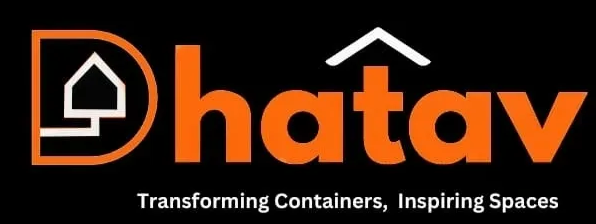Container Workshops
Shipping container workshops are innovative, versatile spaces that repurpose cargo containers into functional work areas for various crafts, trades, and creative pursuits. Here’s a comprehensive description:
Structure:
– Utilizes standard 20 or 40-foot shipping containers
– Can be single units or multiple containers combined
– Sturdy steel construction provides durability and security
– Easily expandable by adding more containers
Exterior:
– Industrial aesthetic with corrugated steel walls
– Large doors (often roll-up) for easy access and ventilation
– Windows cut into sides for natural light
– Can be painted or left in original state for rugged look
– Often features external lighting for nighttime work
Interior Layout:
– Open floor plan to maximize usable space
– High ceilings, especially in ‘high cube’ containers
– Walls and ceiling typically insulated for comfort
– Floors reinforced to support heavy equipment
– Can be customized with built-in workbenches and storage
Ventilation and Lighting:
– Additional windows or skylights often added for improved lighting
– Exhaust fans or vents installed for proper air circulation
– Combination of task lighting and overhead lighting
Power and Utilities:
– Fully wired for electricity with multiple outlets
– Can include 220V power for larger equipment
– Plumbing can be added for sinks or specialized needs
Storage Solutions:
– Wall-mounted pegboards or slat walls for tool organization
– Overhead storage racks to maximize vertical space
– Built-in cabinets and drawers for supplies and small tools
Workstations:
– Custom workbenches tailored to specific trades
– Mobile workstations for flexibility
– Heavy-duty vises and clamps attached to benches
Specialized Features (depending on use):
– Welding booths with proper shielding
– Dust collection systems for woodworking
– Chemical storage areas for painting or fabrication
– Soundproofing for noisy operations
Advantages:
– Cost-effective compared to building traditional workshops
– Portable – can be relocated if needed
– Secure – lockable and weather-resistant
– Quick to set up and modify
Applications:
– Woodworking shops
– Metalworking and welding spaces
– Art studios
– Automotive repair shops
– Electronics labs
– Maker spaces or hackerspaces
– Small-scale manufacturing
Sustainability:
– Repurposes used containers, reducing waste
– Can incorporate solar panels for power
– Smaller footprint compared to traditional buildings
Challenges:
– May require permits or meet zoning requirements
– Need for effective climate control in extreme weather
– Proper foundation and site preparation important
Customization Options:
– Can be fitted with specialized equipment for specific trades
– The exterior can be modified to blend with the surroundings
– Multiple containers can create larger, complex workshop spaces
Safety Features:
– Fire extinguishers and first aid stations
– Proper ventilation for fumes and dust
– Non-slip flooring options
– Lockable storage for valuable tools and materials
Shipping container workshops offer a unique blend of functionality, portability, and durability. They’re ideal for both hobbyists and professionals looking for flexible, secure spaces to pursue their crafts or trades. These workshops can be set up in various locations, from backyards to industrial sites, providing a practical solution for those needing dedicated workspace without the cost and permanence of traditional construction.




